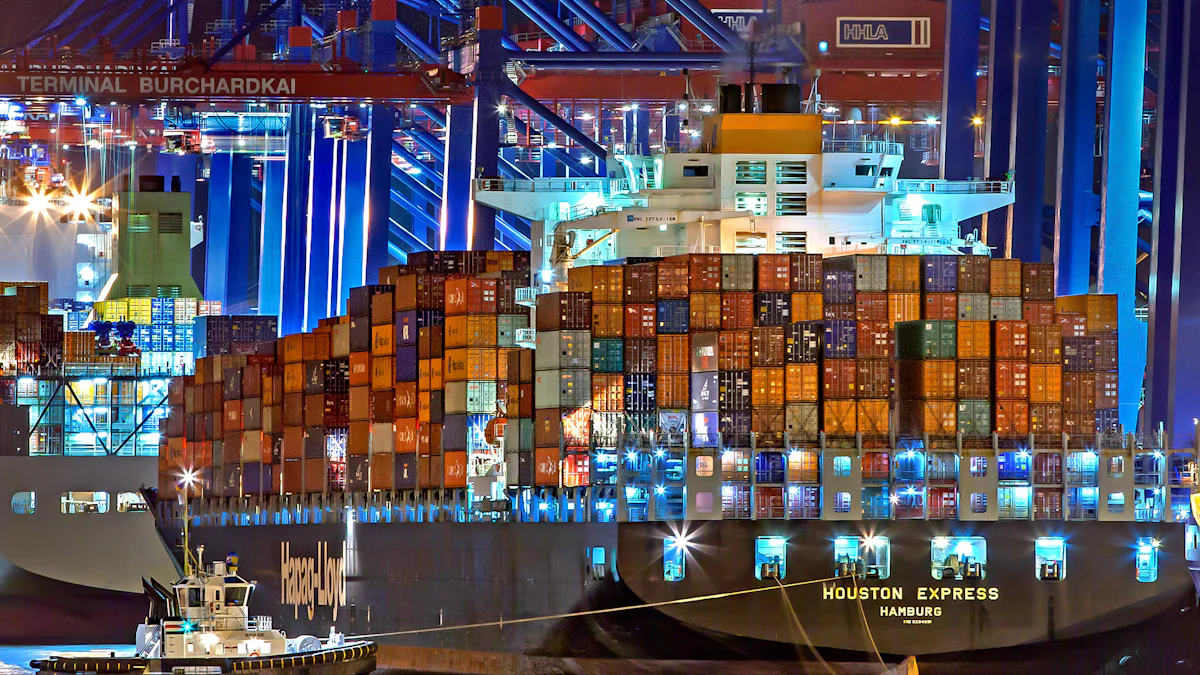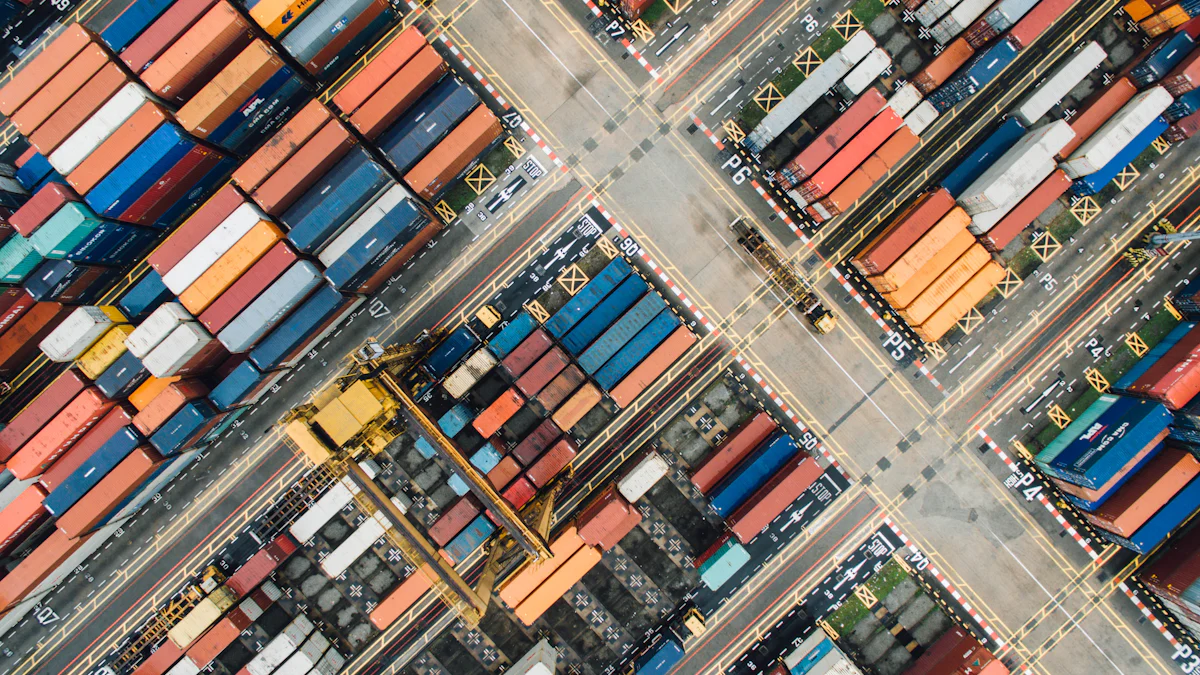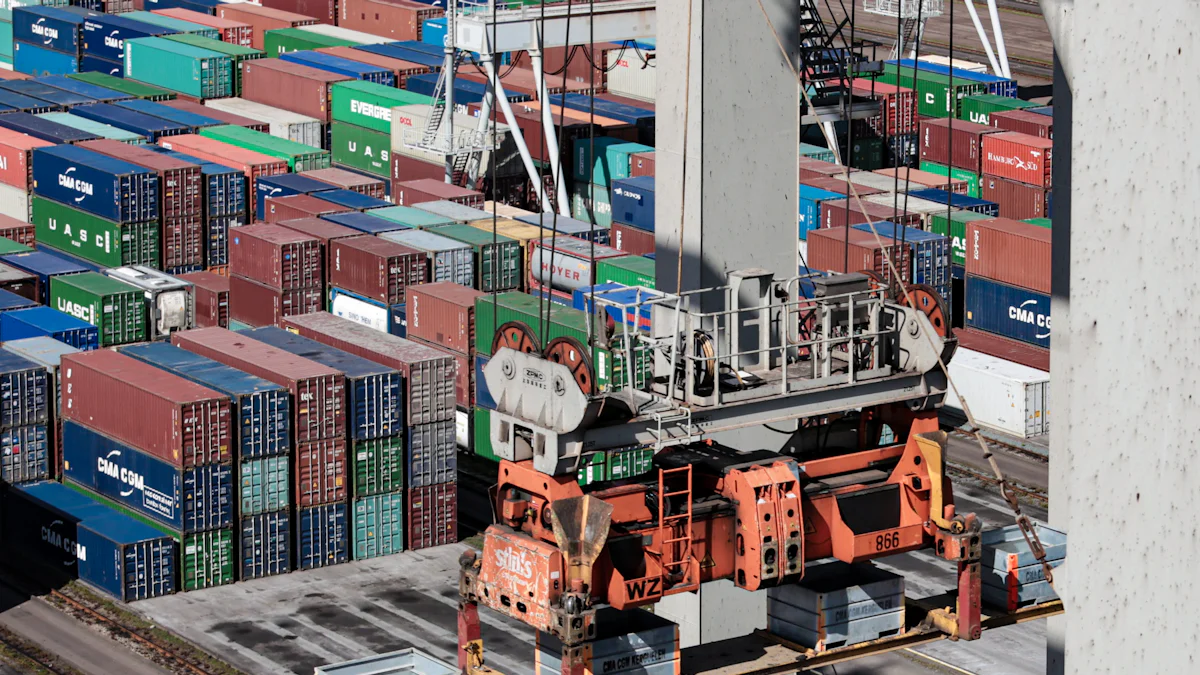The Vital Role of Customs in Global Supply Chains

Customs logistics play a vital role in international trade. Customs regulations ensure goods move legally and efficiently across borders. This process involves compliance with international standards. Customs data provides insights into market trends and competitors' activities. This information helps businesses increase sales and revenue. Global supply chains rely on customs to maintain smooth operations. Accurate classification of goods ensures correct customs rates and taxes. This practice optimizes costs and utilizes trade agreements effectively. Customs clearance verifies documentation and compliance, streamlining international trade processes.
Understanding Customs and Their Functions
Definition and Purpose of Customs
Customs authorities regulate the movement of goods across borders. These authorities ensure compliance with international trade laws. Customs officials play a crucial role in maintaining order in global trade.
Regulatory Responsibilities
Customs officials enforce trade regulations. These officials monitor imports and exports. Customs authorities prevent illegal activities such as smuggling. Customs officers verify that goods meet safety standards. Customs officials protect domestic industries from unfair competition.
Revenue Collection
Customs duties contribute to national revenue. Governments rely on customs for tax collection. Customs authorities calculate tariffs based on product classification. Accurate classification ensures correct duty rates. Customs duties support public services and infrastructure.
Key Functions in Global Trade
Customs authorities facilitate global trade. These functions enhance the efficiency of supply chains. Customs officials ensure smooth cross-border transactions.
Trade Facilitation
Customs procedures streamline trade processes. Efficient customs clearance reduces delays. Customs procedures streamline trade. Customs authorities implement technology for faster processing. Automation improves accuracy and speed in customs operations. Trade facilitation boosts economic growth and competitiveness.
Security and Compliance
Customs authorities safeguard national security. These officials inspect goods for prohibited items. Customs officials ensure compliance with health and safety regulations. Security measures protect consumers and businesses. Customs authorities maintain the integrity of international trade.
The Impact of Customs on Supply Chain Efficiency

Customs Clearance Processes
Documentation Requirements
Customs clearance requires precise documentation. You must prepare invoices, shipping manifests, and certificates of origin. Accurate documents ensure smooth processing. Customs officials verify these documents to confirm compliance. Proper documentation reduces the risk of delays.
Inspection Procedures
Customs inspections assess goods for compliance. Officials check for prohibited items and verify safety standards. Inspections protect national security and consumer safety. Efficient inspection procedures minimize disruptions. Understanding inspection requirements helps streamline logistics operations.
Delays and Their Consequences
Causes of Delays
Delays in customs can disrupt supply chains. Incomplete documentation often causes hold-ups. Misclassification of goods leads to incorrect duty calculations. Unforeseen inspections can also slow down processes. Awareness of these factors helps in planning better.
Mitigation Strategies
Effective strategies can mitigate customs delays. Ensure all documents are complete and accurate. Use technology to track shipments and anticipate issues. Collaborate with experienced customs brokers for guidance. Implementing these practices enhances supply chain efficiency.
Compliance and Its Importance
Legal and Regulatory Frameworks
International Trade Laws
International trade laws govern the movement of goods across borders. These laws ensure fair practices in global commerce. Adherence to these laws prevents disputes between countries. Businesses must understand these laws to avoid penalties. Knowledge of international trade laws supports successful operations.
National Regulations
National regulations vary by country. These rules protect domestic industries and consumers. Compliance with national regulations ensures smooth import and export processes. Businesses must stay updated on changes in these regulations. Understanding national regulations helps avoid legal issues.
Ensuring Compliance in Supply Chains
Best Practices
Adopting best practices enhances compliance in supply chains. Companies should conduct regular audits of their processes. Training employees on customs regulations is essential. Accurate documentation reduces the risk of delays and fines. Implementing these practices strengthens supply chain integrity.
Role of Technology
Technology plays a crucial role in ensuring compliance. Automated systems streamline customs procedures. Real-time tracking provides visibility into shipments. Data analytics help identify potential compliance issues. Investing in technology improves efficiency and accuracy in supply chains.
Challenges Faced by Customs Authorities
Evolving Trade Dynamics
Globalization Effects
Globalization impacts customs authorities significantly. Increased trade volume strains resources. Customs officials must handle more complex transactions. Global markets demand faster processing times. Customs authorities face pressure to adapt quickly.
Technological Advancements
Technology transforms customs operations. New tools improve efficiency and accuracy. Customs officials must learn to use advanced systems. Rapid technological changes require constant updates. Customs authorities need to invest in training and infrastructure.
Resource Constraints
Staffing Issues
Customs authorities struggle with staffing shortages. Insufficient personnel leads to delays. Customs officials experience high workloads. Recruitment and retention become challenging. Effective staffing strategies are essential for smooth operations.
Budget Limitations
Budget constraints hinder customs efficiency. Limited funds restrict technology investments. Customs authorities face difficulties in upgrading systems. Budget issues impact training and development programs. Adequate funding is crucial for maintaining effective customs operations.
Strategies for Enhancing Customs Efficiency
Technological Innovations
Automation and AI
Automation and artificial intelligence (AI) transform customs operations. Customs authorities use AI to analyze large volumes of data quickly. Automated systems reduce human error in processing shipments. AI technology predicts potential compliance issues. Customs officials implement AI for faster decision-making.
Blockchain Applications
Blockchain technology enhances transparency in customs processes. Customs authorities track shipments with blockchain's secure ledger. Blockchain records provide tamper-proof documentation. Customs officials verify transactions efficiently with blockchain. This technology improves trust between trading partners.
International Cooperation
Trade Agreements
Trade agreements simplify customs procedures. Countries negotiate agreements to reduce trade barriers. These agreements establish common standards for customs operations. Businesses benefit from reduced tariffs under trade agreements. Customs authorities facilitate smoother cross-border transactions.
Collaborative Initiatives
Collaborative initiatives strengthen customs efficiency. Customs authorities work with other government agencies. Joint efforts improve coordination in handling shipments. International cooperation enhances security measures at borders. Customs officials share best practices through collaborative programs.
The Role of Customs Logistics in Global Supply Chains

Integration of Customs Logistics
Streamlining Processes
Customs logistics ensure efficient movement of goods across borders. Businesses must streamline processes to reduce delays and costs. Efficient customs logistics involve accurate documentation and timely submission. Companies use technology to automate customs procedures. Automation minimizes human error and speeds up processing times. Streamlined processes enhance the overall efficiency of supply chains.
Enhancing Communication
Effective communication is vital in customs logistics. Businesses need clear communication with customs authorities. Transparent communication helps resolve issues quickly. Companies use digital platforms for real-time updates on shipments. Digital tools facilitate better coordination among stakeholders. Enhanced communication improves decision-making and reduces misunderstandings.
Future Trends in Customs Logistics
Digital Transformation
Digital transformation revolutionizes customs logistics. Companies adopt digital solutions for better data management. Digital tools provide insights into market trends and competitor activities. Businesses use customs data to make informed decisions. Real-time tracking systems offer visibility into supply chain operations. Digital transformation enhances efficiency and competitiveness in global trade.
Sustainable Practices
Sustainable practices gain importance in customs logistics. Companies focus on reducing environmental impact. Businesses implement eco-friendly packaging and transportation methods. Sustainable practices align with global environmental standards. Companies prioritize sustainability to meet consumer expectations. Sustainable customs logistics contribute to long-term business success.
Customs play a crucial role in global supply chains. Efficient customs processes ensure smooth and legal movement of goods. Continuous improvement in these processes reduces risks and enhances compliance. Leveraging technology and best practices strengthens customs operations. The future of customs in international trade looks promising with digital advancements. Embracing innovations will lead to more efficient and transparent customs procedures. Businesses must stay informed and adapt to changes for successful global trade operations.
See Also
The Significance of Global Trade Supply Chain Importance
Discovering Triumph: Supply Chain Transparency in Global Online Business
The Importance of Security in Supply Chain Logistics
